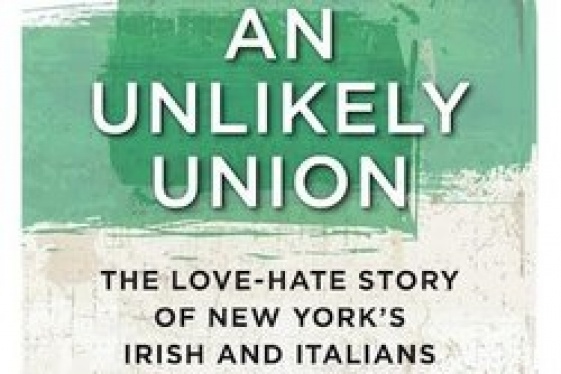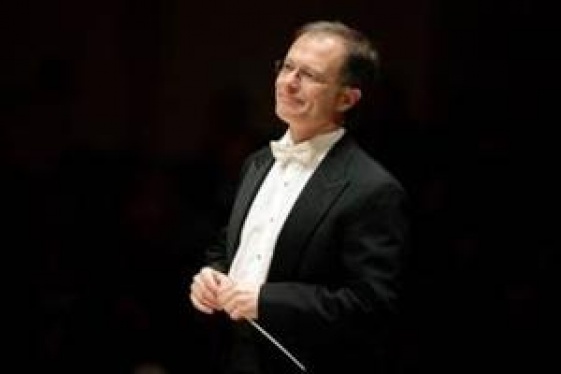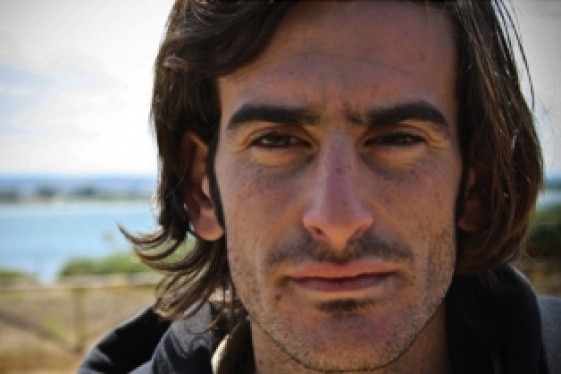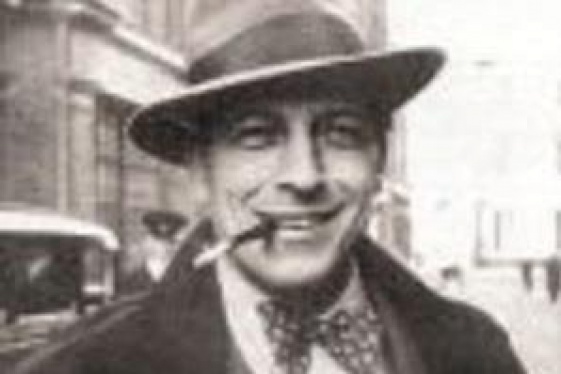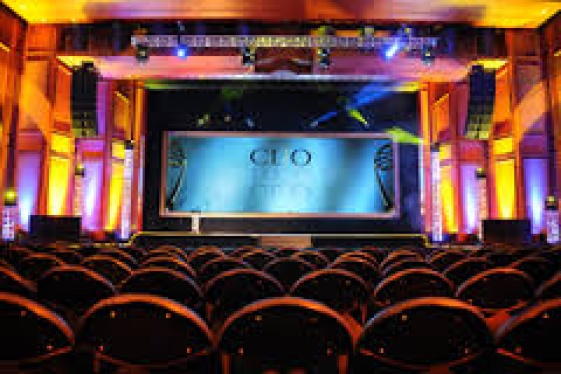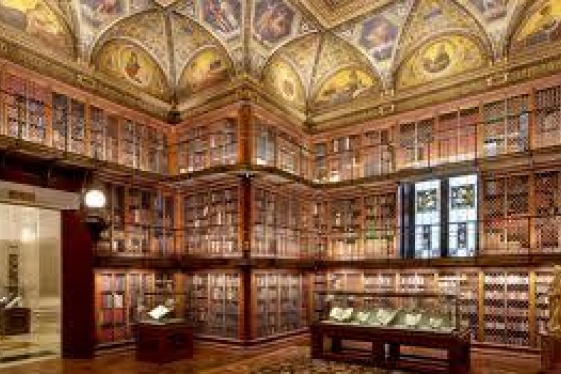
Tony Lo Bianco (Actor)
Tony Lo Bianco: il grande attore italoamericano porta in scena Fiorello La Guardia anche in Italia

In our interviews we often celebrate an Italian American who has had success in a part of the US, has achieved fame for his or hers accomplishments, represents with pride the Italian American community. Well, this time we have two of them, in a single person. Tony Lo Bianco has had a long, successful career. He has won awards, he has been a star for cinema and theatre: he really is an Italian excellence who has brought pride and admiration in all our fellow Italians in the US, of any generation, in any part of the country.
Finally, in May 2015 Tony will bring to Italy his masterpiece, "The Little Flower": an educational, inspirational and comedic one-man show, set in the 1945 City Hall office of Fiorello H. La Guardia, during his final day as three-term mayor of New York City. Tony literally becomes Fiorello: and so we have two different wonderful Italian American in a single person. We always say that Italy needs more America: for sure we can say that Italy now would desperately need a Fiorello La Guardia, and in a way, in May he will be here. Ladies and Gentlemen, give it up for Tony Lo Bianco!
Tony, your career is a wonderful story of talent and success. Please, tell us something about it
In high school, two students were performing a scene from Shakespeare's Julius Cesear between Brutus and Cassius. I had no idea what they were saying; I couldn't understand a word. But I was fascinated by the sound, of the pitter-patter of the speech. And you can ask me why I was fascinated, but who knows, I have no clue. But I wanted to hear. It was so interesting to me. The students in the auditorium were loud and unruly. I made them be quiet so I could hear the actors perform, and fortunately they listened to me. Afterwards the teacher and both thespians thanked me and invited me to join them. I had no interest, but I did go down to Brooklyn to watch them in a radio show. It didn't interest me that much, but I did eventually learn both parts of Brutus and Cassius, still not knowing most of what it meant.
Then, another miracle occurred. A contest came around in my senior year. And, the fact that I was both the leader and the president of the class, even running for president of the school, provoked my involvement. I boxed in the golden gloves, I was an all-star baseball player, and had a tryout with the Brooklyn Dodger Rookies at Ebbets field. I had some kind of leadership ability, and thrived on the responsibility of being a leader. So when a declamation contest came around, I had to enter.
But what was I going to do in this contest? That is when another miracle happened. My aunt, who lived beneath us in Brooklyn, had a sister that was visiting, and she happened to have a poem with her and said why don't you do this poem, and it was about a soldier dying in a fox hole, and seeing God for the first time. I performed that poem and won for my class, and then for my school and my teacher, Ms. Patricia Jacobson was coaching me all the way. Before you knew it, I was representing Brooklyn in the city finals; all 5 boroughs. I came in second. Then, I graduated, I had no interest in any of the vocational classes that were being taught in the school and so I thought well let me see about acting. So I went to an acting school, The Dramatic Workshop in NYC.
My brothers John and Joseph and I are loyal and dedicated to what we set out to do. If we are going to run through a wall we are going to run through a wall, if we are going to climb a mountain we are going to get to the top. That's the way we lived. When we played ball we were going to make the most difficult plays you could imagine. We were going to dive on cement, run into a fence, whatever it took just to make the play. We were only interested in making spectacular plays. Balls hit over our head, and jumping as high as possible to make the play. Anything that was difficult, we wanted to do.
So, when I went into acting school, I wanted to learn everything from sweeping and mopping a stage to lighting, directing, costumes, stage settings, stage managing, everything. That determination has helped me throughout my life. My life was now being an actor. Now of course I am an actor, director, writer, and producer. It all comes full circle, it all pays off. I remember the first scene I did in class. The role was perfect for me, it was Clifford Odette's "Golden Boy". I was the right age, and the character Joe Bonaparte, was a boxer. I remember rehearsing a 5 minute scene for three months with a woman who was much older than me, and a veteran actor. I wore her out by saying, it's not right it's not right it's not right, let's keep doing it and doing it, until we finally did present it. And it was greatly received by the head of the school. All that work paid off. That is how you build up a reputation, and how people are drawn to you. I've always been proud of the fact that it is my work that people appreciate. The dedication not only for my work, but everything that I believe in. Supporting our war veterans our police dept. our firemen. You name it, if it's good for this country I support. I think people see that. It is my respect for the people that serve this country and give of themselves to protect others that I am most proud of.
Is there an anecdote that has a symbolic meaning for you? Or maybe just a funny thing that happened through those years?
They all have symbolic meaning because they are all part of my life, my growing up, my understanding, and my education. I learned very little from formal education. My biggest education comes from my observation. It teaches me a lot about people, understanding of what makes a person tick, why I'm gravitated to a character, I'm just an instrument, just a piece of clay, to be molded into whatever character is called for. My Italian looks make it more difficult to transform into a different human, and I thrive on that. I thrive on the challenge. It is the biggest plus in my life. It makes you grow; conflict makes you grow wiser. Difficulty is a blessing, it is something to learn from, to overcome and conquer and use for your betterment in your art and life.
The relationship between the American movie system and the Italian Americans has been through different situations. When Italians were heavily discriminated, Italian actors were heroes for the Italian American community. After the war a true masterpiece like "The Godfather" described an Italian family that easily became the (wrong) reason to label every Italian American as a criminal. Only now, maybe for the first time Hollywood decided to make a movie to celebrate an Italian American hero, Louis Zamperini: still, a movie where the producers, the director and the leading actors are not Italian Americans. What does a great actor like you think about this?
I am more interested in the authenticity of the portrayal of the character. I don't care what nationality he or she is. If the actor can be convincing that they are playing an Italian from a certain period, than Bravo! That's what we are all looking for. If a white man could play a black man, like Lawrence Olivier did in Othello, and can pull it off, great. If a black man can play a white man, fantastic. I'm more interested in actors who are artists.
I wish Italian Americans were cast more in the mainstream. I would love to see more Italian Americans in roles like lawyers, judges, doctors and heads of corporations. We have to remember the great magnificent geniuses that I mention in my play. Michelangelo, Marconi, Galileo, Leonardo da Vinci, Puccini, Verdi, Dante, Machiavelli, Caravaggio, Christopher Columbus, Marco Polo, Caruso, Garibaldi, Donatello, Elenora Duse, Enrico Fermi, the Medici's, Meucci, Raphael, Botticelli, Bellini, Bernini, Toscanini and the man this country was named after Amerigo Vespucci (America): these are some wonderful Italians. These geniuses are the foundation that our reputation should be built on.
Let's talk about "The little flower", your fantastic one-man show about the great Fiorello La Guardia. When I saw the show I understood why people kept telling me "Tony IS Fiorello": I agreed with them. How and when did you create the show? Please tell our readers about it
1984 was the first time I performed "La Guardia". It was called, "Hizzoner" then. We did it for WNET public television here in New York. We did it on stage at the Egg (The Empire Estate for the Performing Arts in Albany). It was more of a Valentine to Mayor LaGuardia rather than getting to the poignancy of his value. He did so many wonderful things.
Fiorello La Guardia: the most popular mayor in New York history, according to a poll made among the New Yorkers; the most important Italian American of all, according to the Italian Prime Minister Alcide De Gasperi after the second world war. Why was he that great, and what is the lesson that still nowadays comes from this great Italian?
People always thought of him as a cartoon character with his funny voice, the look of his shortness, his rotundness, all his energy and the big sombrero hat that he wore. That was only an image, only his outside, not what he accomplished as a mayor. I have the benefit of hindsight to write and form a play on what was going on in his time. He was a seven-term congressman and a three-term mayor. He volunteered to enter the first world war, he learned how to fly from his good friend Giuseppe Bellanca in three months. Then enlisted into the army as a pilot and in one year became a major. He was a rather remarkable fellow.
He was great for all the things he accomplished. He was everywhere. He was of and for the people. He was a man who cared desperately for people and children. In that time of the depression, if you were a little kid, you'd find his car in front of your house. He'd be talking to your mom because she didn't have milk. He made sure she got what she needed. He understood that fireman and police could be killed in the line of duty, and thought, that is where the mayor should be. Sharing the risks alongside brave and honorable men. He was that kind of a fellow and accomplished so much for the laws of this country. The amount of things he built in this city is remarkable. He built fourteen public housing developments, fifteen outdoor swimming pools, twenty-five new hospitals, and ninety-five new schools. Three hundred and forty playgrounds, sixty tennis courts, redoing all of Central Park putting in a brand new zoo. The Belt Parkway, the Marine Parkway in Brooklyn, the Bronx Whitestone Bridge, the Tri-Borough Bridge, the Reese Park Bridge in Queens, the Queens Mid-Town Tunnel, the Lincoln Tunnel, the Holland Tunnel, and let's not forget the Brooklyn Battery Tunnel, the East River Drive, the Westside Highway, The Henry Hudson Parkway and the Grand Central Parkway just to mention a few things that he did.
On May 18 you will perform "The Little Flower" at Teatro Sala Umberto in Rome, for the first time in Italy. What does it mean for you to perform in Italy?
It means everything to me. I'm a very proud Italian American .My parents were born here in America, my grandparents on both sides were born in Italy. I owe everything to being Italian because it's given me such freedom to enjoy life and to see and experience. I have very little cover, I'm not shy to express myself. I'm not inhibited by things that normal people are. I don't get stage fright. I have something to say and a venue to say it. I am an outspoken actor and the vibrancy of being Italian, being able to express myself is a gift. I was fortunate enough to grow up with eight uncles. My mother had eight brothers and that helped me a great deal because of the stories and the history of their lives. The background stories of their struggling, of trying to put two cents together. To me that's what's so exciting about life and living. The difficulty to overcome. My mother as a young girl and my father both had to be taken out of school to go to work in the factories. My mother sewed coats, she had no life as a young girl she had to take care of her brothers, and so was already being a mother when she was a little girl.
That kind of life experience gives you so much to learn from. That's all part of the struggle.
This will be my fifty-eighth time visiting Italy. I've done twelve or so movies there. I've worked with the some great directors: Franco Zeffirelli, Giuliano Montaldo, Dino De Laurentiis, Peppino Rotondo, Giacomo Battiato, and the fabulous Gina Lollobrigida. I've had the greatest experiences every time. It has been a wonderful education. And as far as the script is concerned, I'm still getting new ideas.
I keep getting inspired from what's going on in the world. I'm constantly changing the script and adding new ideas each day, because the world is evolving and the parallels that LaGuardia went through apply today. We don't seem to learn from history, and that is my biggest lesson for doing this play. To watch history and learn from it, so we don't make the same mistakes over and over again. And God bless Italy. I look forward to this trip, I look forward to presenting this play to the troops, students, politicians and people of Italy. When I go there I want to teach classes for acting and directing, and life. It is all inspiring.
You may be interested
-
An Unlikely Union: The love-hate story of Ne...
Award-winning author and Brooklynite Paul Moses is back with a historic yet dazzling sto...
-
Candice Guardino Brings GILDA AND MARGARETTE...
Candice Guardino is adding to her list of successful theatrical productions with the debut...
-
Cathedral of St. John the Divine, Oratorio S...
For the first time ever, The Cathedral of St. John the Divine, in collaboration with the O...
-
Davide Gambino è il miglior "Young Italian F...
Si intitola Pietra Pesante, ed è il miglior giovane documentario italiano, a detta della N...
-
Garibaldi-Meucci Museum to Celebrate Ezio Pi...
On Sunday, November 17 at 2 p.m., Nick Dowen will present an hour-long program on the life...
-
In sordina, l’Italia ritorna in scena al Nat...
La presenza italiana a Natpe 2016, la principale fiera Tv per il mercato Latino Americano...
-
Italian Master Drawings From The Morgan (Onl...
The Morgan Library & Museum's collection of Italian old master drawings is one of the...
-
Italian Women Trailblazers - Young Professio...
April 16, thursday - 6,30 EDTAzure - New York, NY - 333 E 91st St, New York 10128Tick...












